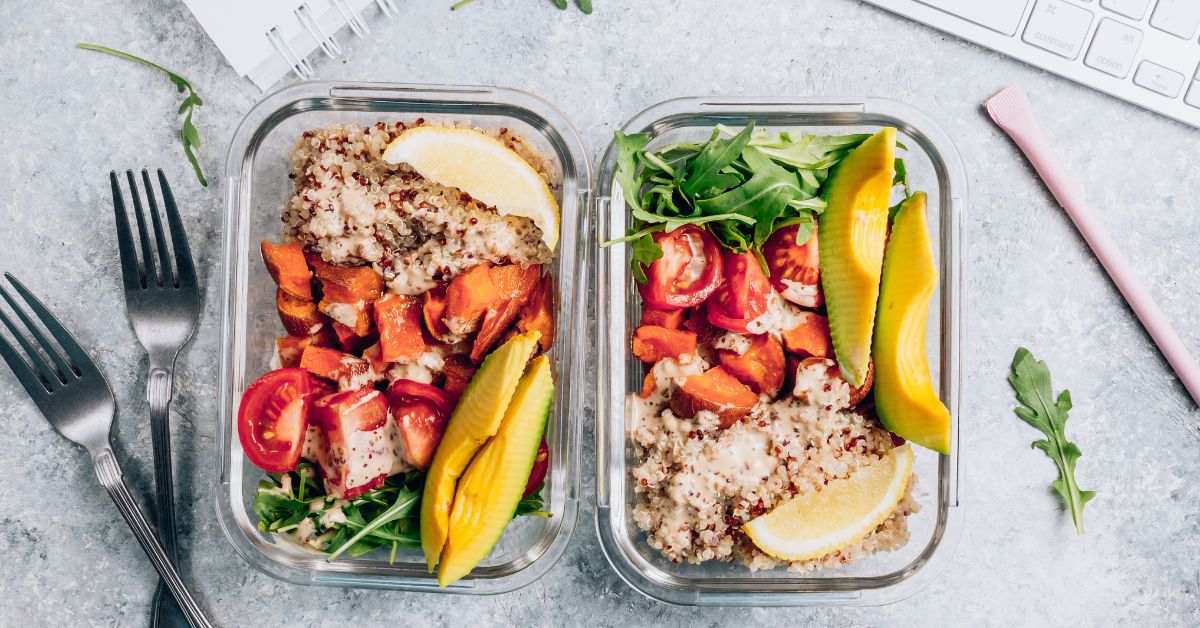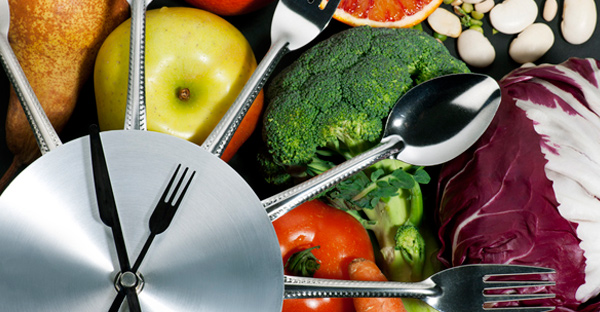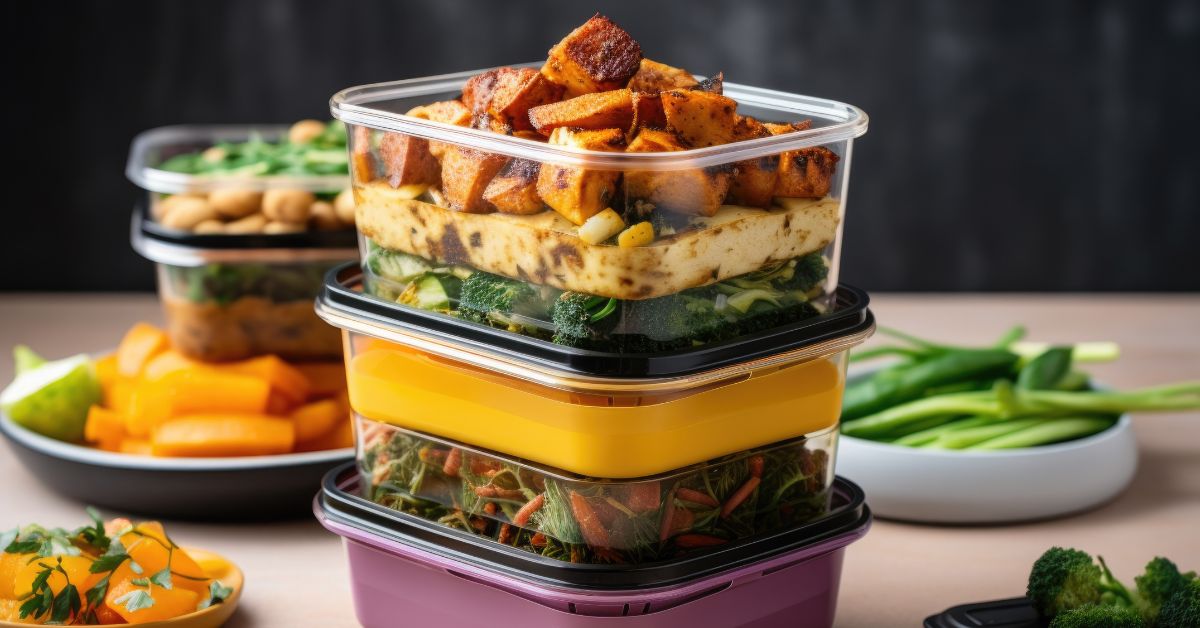

Switching to a whole food, plant-based (WFPB) lifestyle usually means cooking most of your own meals, but it doesn’t require spending half your life in the kitchen. This is one of the biggest myths about healthy diets, and a lot of people never make the transition because they believe they don’t have enough time to cook.
The truth is you can have a WFPB dinner on the table in under 20 minutes most nights of the week and the rest of your meals ready to go if you incorporate just a few simple steps into your routine.
Start With a Plan
Everything successful in life begins with a plan, even meals! Your first step in managing prep time is to take a few minutes at the start of the week to write down a general list of meals you know you’re going to eat. For example, a typical day may look like this:
- Breakfast: Oatmeal with flax and berries
- Lunch: Salad with beans and homemade vinaigrette
- Dinner: Bean chili and rice
After you’ve mapped out the week, add a short list of personal and family favorites. This should give you a good idea of which dishes you eat most often.
Don’t forget to include some snack ideas. A lot of people struggle with this when switching to a plant-based diet because most familiar snack options are processed convenience foods. But if you plan in advance, you can have your own “grab-and-go” snacks ready and waiting throughout the week. Some tasty homemade options include:
- Veggies and hummus
- Granola or granola bars
- Energy bites
- Trail mix
- Fruit
Prep Foods in Advance
Step two for successful cooking is to prep as many of the ingredients as you can for the meals on your list. If you think you’re too busy, consider how much time you spend mindlessly scrolling through social media, getting sucked in by clickbait articles, or binge-watching Netflix. Using just a small chunk of this time to prep food instead will make your life a lot easier throughout the rest of the week.
What foods should you prep? Stick with the basics:
- Chop veggies for salads and snacks
- Cut up large fruits like pineapples and melons
- Make hummus and salad dressings
- Peel and freeze bananas for smoothies
- Mix together your favorite fruit and nuts
- Wash salad greens and whole fruits
Store prepared foods in airtight containers in the refrigerator. To make snacking as easy as possible, divide individual portions into reusable containers or bags you can grab when you need a quick energy boost.
Make Batch Cooking Your Friend
Batch cooking is like prepping on a larger scale, and it’s the best example of how investing a little extra kitchen time now and then can save precious hours during the week. Just like with basic ingredient prep, find a window of time you can use to make full meals or several servings of main ingredients, and commit to using the time only for batch cooking.
Mason jar salads keep well enough that you can prepare a whole week of lunches in advance.
Choose dishes from your original list that are easy to prepare in large batches and that you won’t mind eating multiple times during the week. Some good candidates include:
- Soup
- Stew
- Chili
- Veggie burgers
- Meatless loaf
You can also pre-cook a big pot of oatmeal, store it in an airtight container in the fridge and reheat portions for breakfast for four to six days. Mason jar salads keep well enough that you can prepare a whole week of lunches in advance. If you’re making food for a special occasion, consider doubling the recipe so that you have extra meals left over.
Individual ingredients like beans and rice are easy to batch cook any time, especially if you invest in an electric pressure cooker such as an Instant Pot. These “set it and forget it” time savers allow you to cook ingredients or whole meals while you’re busy doing other things. It’s even possible to set a delay timer or use a “keep warm” function so that food is ready at dinner time regardless of your schedule.
To store batch-cooked foods, separate them into portions in freezer-safe containers. Label each container with the contents and date. With your freezer fully stocked and your prepped ingredients ready to go in the fridge, making a quick weeknight meal is as easy as pulling out a few containers to thaw before you go to work and throwing everything in a pan to warm up when you get home.
Practice these smart kitchen habits for one month, and see the difference it makes in your schedule and your food choices. Make note of the times, methods, and recipes that best fit your lifestyle, and stick with them to make everything easier. Simplicity is at the core of a successful plant-based lifestyle, but by shifting the way you approach meal prep, “simple” meals can be diverse, fun, and delicious.
Copyright 2026 Center for Nutrition Studies. All rights reserved.
Deepen Your Knowledge With Our
Plant-Based Nutrition
Certificate
Plant-Based Nutrition Certificate
- 23,000+ students
- 100% online, learn at your own pace
- No prerequisites
- Continuing education credits





